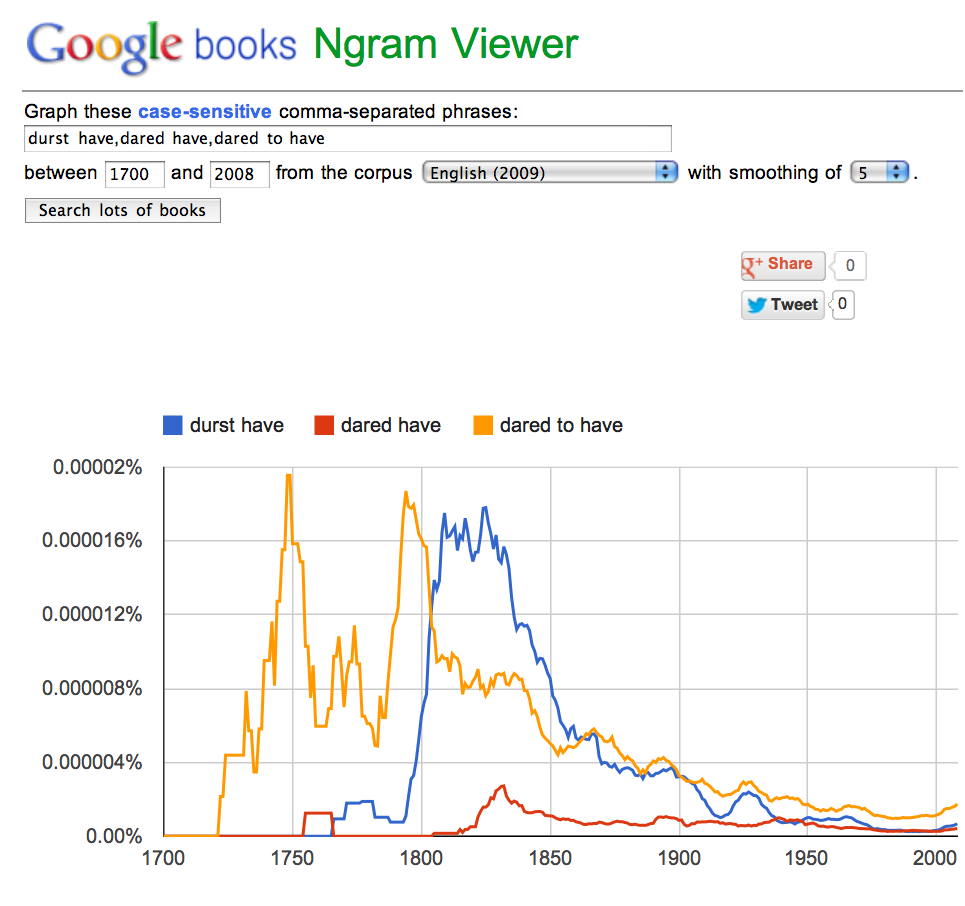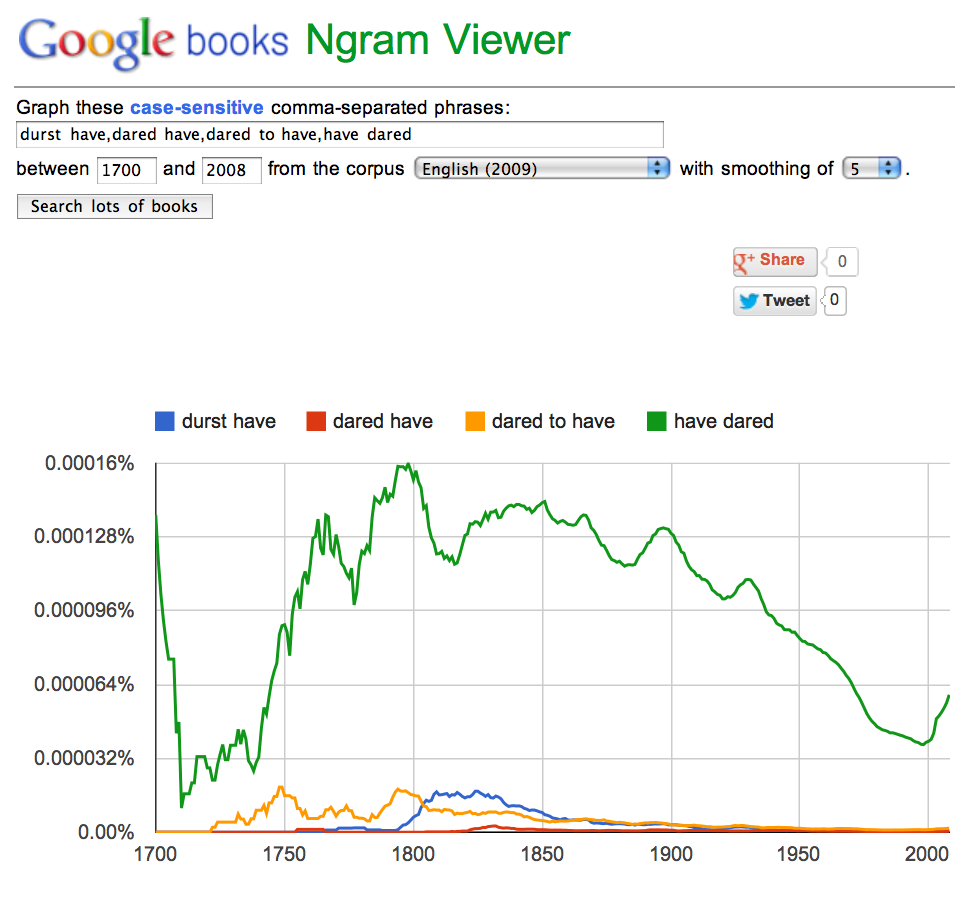Those now all sound wrong to the modern ear. In contemporary English, that should just be one of:
- I never dared to tell you.
- I never dared tell you.
- I dared never tell you.
Of those, the second may be preferable. Notice how dare can be used without a to-infinitive but just a bare infinitive, where it acts more like a modal verb.
The OED gives only one citation using a “perfect infinitive” with dare, and this citation is with a bare infinitive (not a to-infinitive) complement:
- 1790 Cowper Let. to Mrs. Bodham 21 Nov. — Such as I dared not have given.
Perhaps it is more normal to say to have dared do something than to say dare (to) have done something.
- I’ve never dared tell you.
- I’ve never dared tell you.
Dare is actually a somewhat complicated verb with a complex history. The OED says of it:
Etymology: One of the interesting group of Teutonic preterite-present verbs, of which the extant present is an original preterite tense: see can, dow, etc.
[. . .]
The original 3rd sing. pres. he dare, and pa. t. durst, remained undisturbed to the modern period, in which the transitive senses (B. II.) were developed; but early in the 16th c. the new forms dares, dared, appeared in the south, and are always used in the transitive senses, and now also in the intransitive sense when followed by to. In the original construction, followed by the infinitive without to, dare, durst are still in common use (esp. in the negative ‘he dare not’, ‘he durst not’); and most writers prefer ‘he dare go’, or ‘he dares to go’, to ‘he dares go ’. The northern dialects generally retain ‘he dare, he durst’, and writers of northern extraction favour their retention in literary English when followed by the simple infinitive without to.
Dare has an irregular simple past tense durst that you will sometimes read in literature but which is today preserved mostly in regional English only.
In older works you can also find durst used as a past participle, or used in places traditionally analysed as past subjunctive or conditional.
The OED also notes that the present-tense form dare is occasionally “carelessly used for the past dared or durst”. This seems to have been more common during the 19th century. Some of the OED citations from then of this are:
- 1811 A. Bell in Southey Life (1844) II. 651 — I wish I dare [= durst] put them down among our books.
- 1847 Marryat Childr. N. Forest vii, — He told me he dare not speak to you on the subject.
- 1857 Kingsley Two Y. Ago I. 214 — She was silent; for to rouse her tyrant was more than she dare do.
- 1857 Kingsley Two Y. Ago 298 — But she went into no trance; she dare not.
I would advise against using dare as a past tense form. If you still wanted an old-time feel to it, you could use durst. You can find durst have used in the 17th and again in the 19th centuries. The 17th-century data isn’t very good, but here is a Google N-Gram starting from the 18th:

However, once you add have dared to the mix, everything else flatlines:



